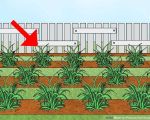Lawn Care Myths and Facts: What You Need to Know
- 1-Common Myths About Lawn Care
- 2-Debunking the Myths: The Truth Behind Lawn Care
- 3-The Real Secrets to a Healthy Lawn
- 4-When to Seek Professional Lawn Care Help
1. Common Myths About Lawn Care
Lawn care is a topic surrounded by many misconceptions. Some of these myths can lead to ineffective practices that not only waste time and money but may also damage your lawn. Understanding the truth behind these myths can help you achieve a lush, green lawn without unnecessary effort.
Here are a few common lawn care myths:
- “The more you water, the better your lawn will grow.” Many people believe that frequent watering is the key to a healthy lawn. In reality, overwatering can harm your grass, causing shallow root growth and making the lawn more vulnerable to disease and pests.
- “You should mow your lawn as short as possible.” Cutting your grass too short can stress the lawn, making it more susceptible to heat, drought, and weeds. The right mowing height is crucial to maintaining healthy grass.
- “Fertilizer is the only thing your lawn needs.” While fertilizer is important, it’s only one part of lawn care. Soil health, proper irrigation, and pest control all play a significant role in maintaining a healthy lawn.
These myths can lead to ineffective lawn care practices, so it’s essential to differentiate fact from fiction to keep your lawn thriving.
2. Debunking the Myths: The Truth Behind Lawn Care
Now that we’ve identified some of the most common myths, let’s look at the real facts about lawn care:
- Watering Properly: While water is vital, it’s more important to water deeply and less frequently. This encourages the roots to grow deep into the soil, making the lawn more resilient to dry conditions. Typically, watering once or twice a week is sufficient, depending on the climate and soil type.
- Right Mowing Height: Grass should generally be kept around 2.5 to 3 inches high. This helps shade the soil, reduce weed growth, and protect the roots from extreme temperatures. Mowing your grass too short can lead to “scalping,” which weakens the lawn.
- Balanced Fertilization: Fertilizer is important, but it should be used in conjunction with other practices like aeration, overseeding, and proper watering. Over-fertilizing can lead to excessive growth, which is not healthy for the grass in the long run.
By focusing on the right watering techniques, proper mowing height, and a balanced lawn care routine, you’ll set your lawn up for success.
3. The Real Secrets to a Healthy Lawn
Achieving a beautiful, healthy lawn takes more than just debunking myths. It requires a combination of the right practices and understanding your lawn's specific needs. Here are some of the real secrets to a thriving lawn:
- Soil Health: Healthy soil is the foundation of a healthy lawn. Regularly test your soil to ensure it has the right pH and nutrient levels. Aerating the soil can also improve oxygen flow to the roots and enhance water absorption.
- Weed and Pest Control: Effective weed and pest control is crucial for maintaining lawn health. Use organic or natural treatments when possible, and always follow the proper guidelines for applying herbicides or pesticides.
- Seasonal Lawn Care: Tailor your lawn care to the seasons. In the spring and fall, focus on fertilizing, aerating, and overseeding. In the summer, ensure your lawn is properly watered and mow it at the right height to prevent stress.
By prioritizing soil health, effective pest control, and adapting your care practices to the seasons, your lawn will stay healthy and vibrant year-round.
4. When to Seek Professional Lawn Care Help
While many aspects of lawn care can be managed on your own, there are times when seeking professional help is a smart choice. If you're facing persistent problems with your lawn that you can’t resolve through regular care, or if you don’t have the time to dedicate to your lawn, it might be time to hire a professional lawn care service.
Professional lawn care companies can provide expert advice and services tailored to your lawn's specific needs. From fertilization and pest control to aeration and landscaping, their knowledge and tools can make a significant difference in the health and appearance of your lawn.
If you’re looking for high-quality lawn care services, be sure to check out Lawn Care Services for expert help and the best products tailored to your lawn’s needs.








